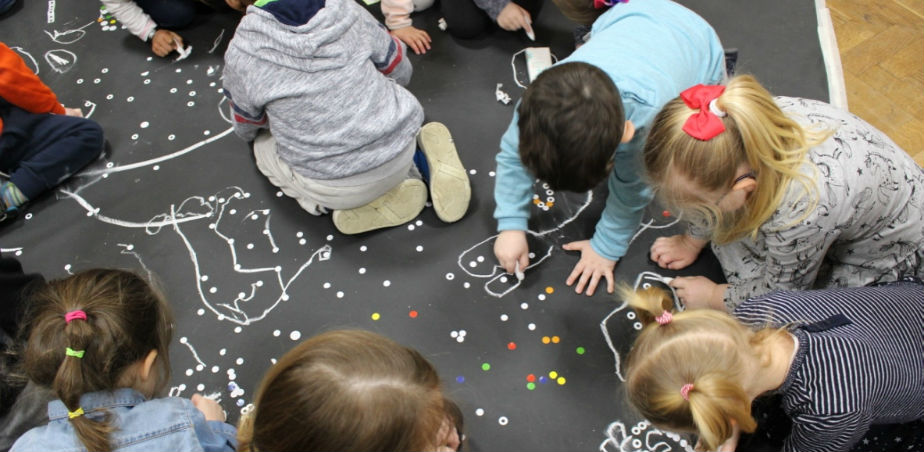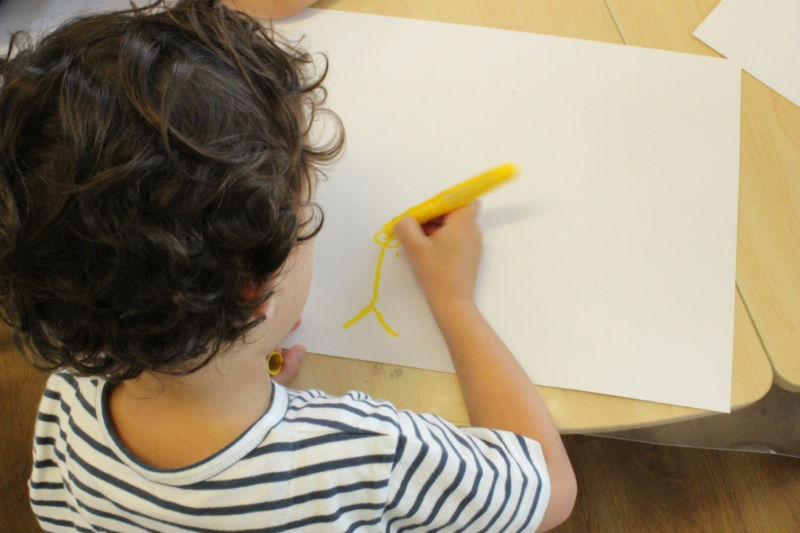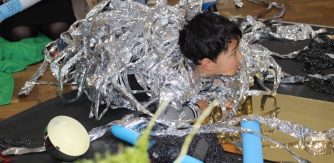Blog 4 – Milica Atanackovic, Training & Practice Manager Early Childhood Ireland


Milica (Mili) Atanackovic is a Practice and Training Manager with Early Childhood Ireland. Her background in the early years is rooted within a passionate interest in Creative Arts. Mili originally studied Design Communication before moving into Early Childhood Care and Education in Australia. Considering training and mentoring as a key element of quality in the early years, Mili has worked as an Educator, Service Manager and Trainer, she also combines experience from a range of creative disciplines to her work
The Art of Storytelling
“People think that stories are shaped by people. In fact, it’s the other way around.” Terry Pratchett
The art of storytelling allows children and adults to express themselves. A written story, an illustration and the spoken word can provoke an immediate connection. For very young children stories can have no words, a story might have clear meaning, but a story may also remain unclear – their play is the story. A teacher needs to tune in and listen to how even the youngest child is expressing their story, through for example their voice, actions, interactions, and hands-on experiences. The child needs tools to provoke a story, opportunity and time to share their thoughts. For older children exploring deeper questioning, their inquiry can be helped by the child and adult enquiring together.
Like a writer telling a story when a child can represent their ideas and words through creative processes, they can express thought and emotion. Expressing these emotions in a symbolic or abstract way. We do not have to draw, paint or photograph for children. Older children can be shown a variety of illustrative techniques that can inspire and provoke a representation of their individual ideas, but it is not a necessity. By providing the tools, we support children to explore and contextualise their thought processes independently. Through hands-on investigation and illustrative techniques children can develop an understanding of themselves and the world around them. Children can challenge and extend their own thinking, create new knowledge and engage individually or collaboratively in processes.

The creative child is encouraged when materials are presented for free uninterrupted exploration. By using art to tell stories, children are given the opportunity to problem solve, share, explore and communicate through the arts. Active involvement changes what they know and can do, developing creativity and storytelling concepts enables children to participate in and give voice to their thoughts, transferring and adapting what they have learned from one context to another.
One way Early Childhood Ireland encourages early childhood teachers to share children’s stories, is through our Book Club, the aim is to create a space where stories are shared with other children, teachers and families. We store them in our online Children’s Library, encouraging children as authors and illustrators. The book club is not about a product it is about seeing the beauty in what children say, think and create. A child’s story does not need to be planned, it does not need to follow a sequence, children have an innate ability to take us on such amazing unexpected and inspiring adventures.
To be inspired by children’s stories or to submit a child’s story please visit https://www.earlychildhoodireland.ie/?s=book+club
